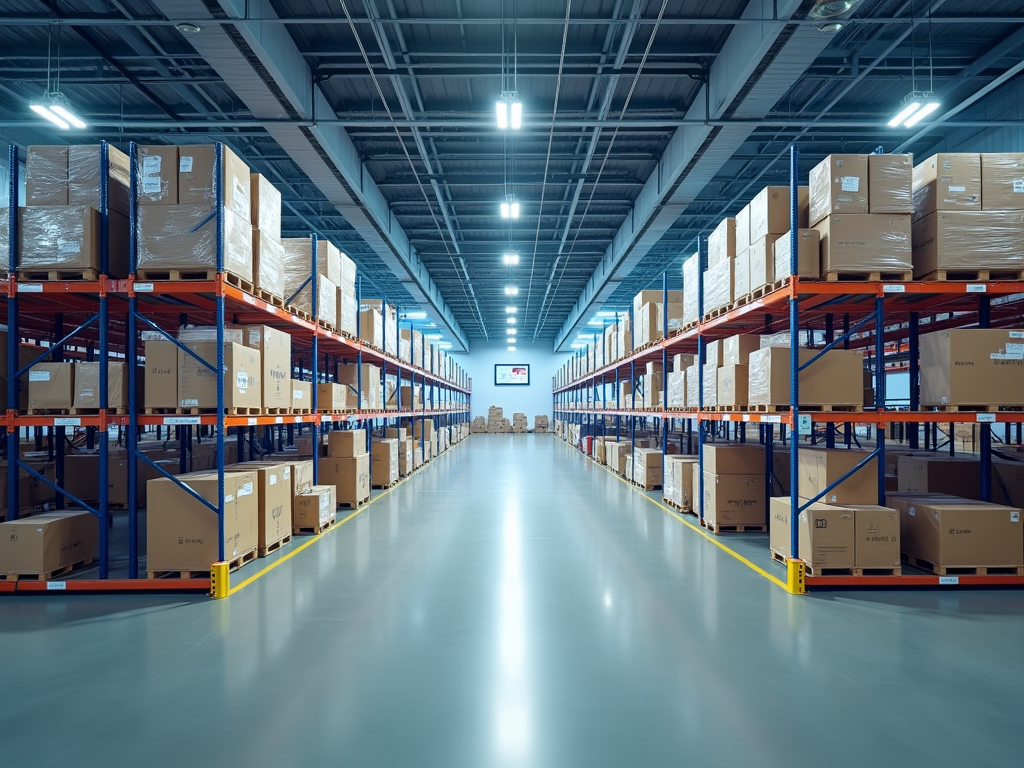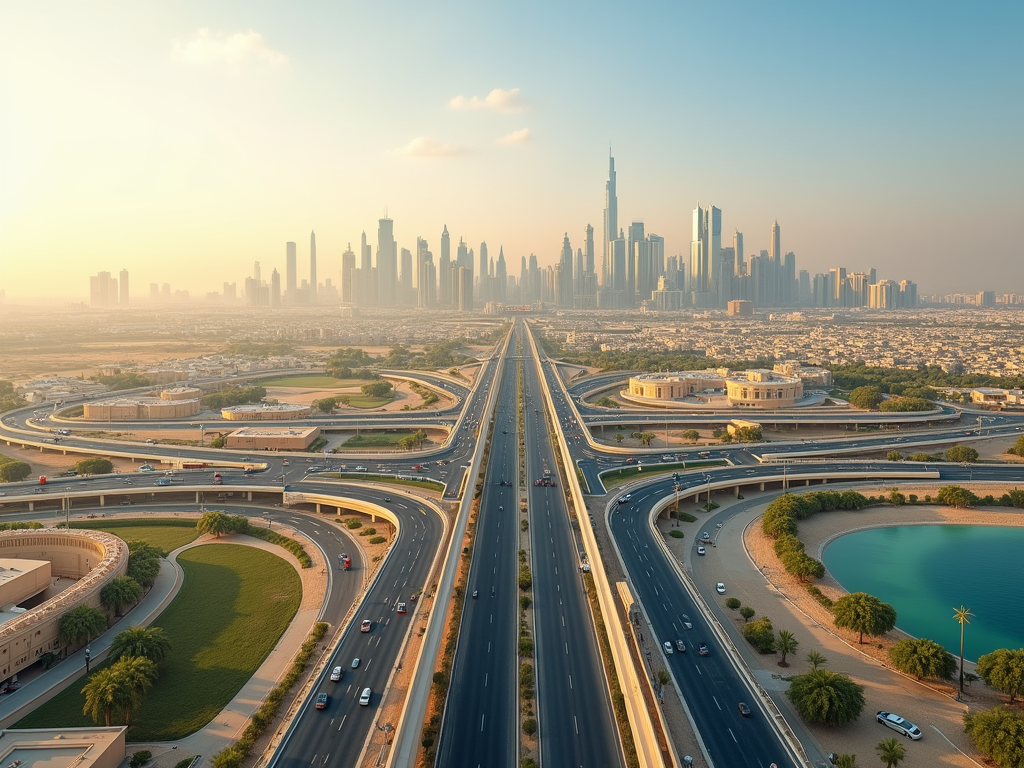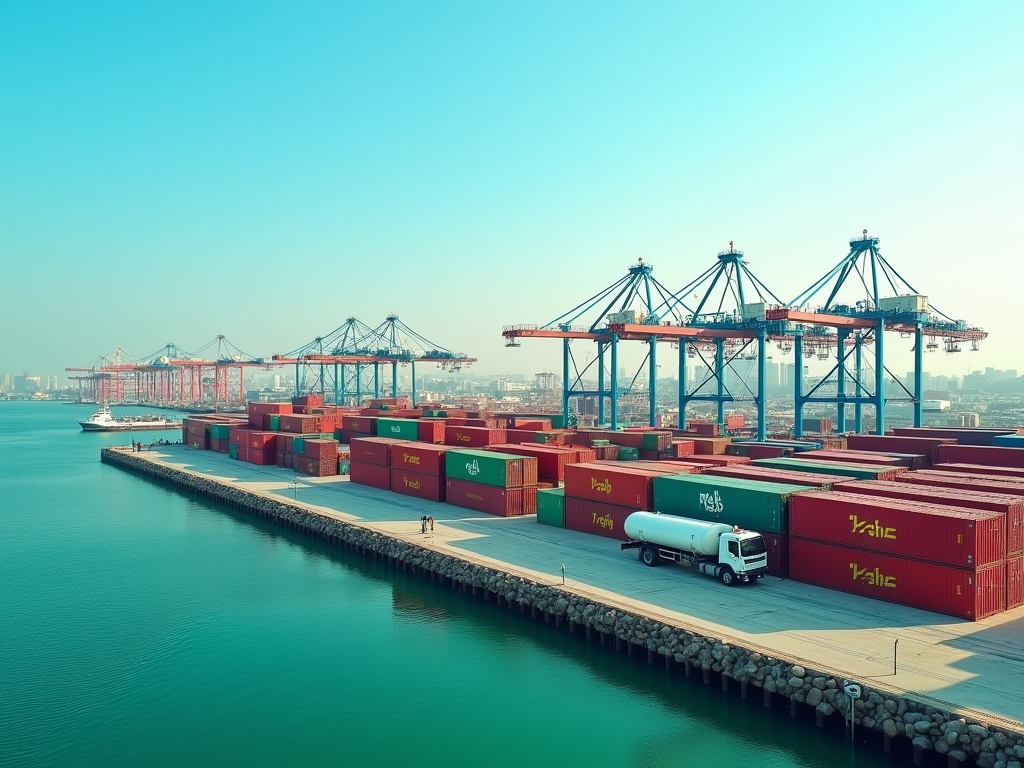Dubai has emerged as a global hub for logistics and transport, revolutionizing the industry through strategic location, cutting-edge technology, and substantial investment. The emirate’s unique geographic position at the crossroads of Europe, Asia, and Africa has attracted businesses from around the globe, making it an ideal logistics center. These factors, combined with a significant upgrade in infrastructure, have propelled Dubai to the forefront of logistics and transport services. In this article, we will explore the key components that contribute to the phenomenal growth of this sector in Dubai.
Strategic Geographic Location

One of the primary drivers behind the rise of Dubai’s logistics and transport industry is its advantageous geographic location. Positioned strategically between key global markets, Dubai serves as a premier gateway not only for the Gulf region but also for the surrounding continents. This ideal location offers several benefits:
- Access to Major Trade Routes: Dubai connects East and West, facilitating efficient trade routes.
- Proximity to Emerging Markets: Nearby countries in Africa and Asia present significant growth opportunities for logistics businesses.
- Time Zone Advantages: Dubai’s time zone enables simultaneous business operations across critical markets.
As a result, companies seeking to optimize their supply chains benefit from Dubai’s unique positioning, offering unparalleled efficiency in customs and transit times. This geographical advantage has created an influx of logistics firms eager to establish a presence in the region.
World-Class Infrastructure Development

Dubai’s commitment to building world-class infrastructure is another critical factor that supports the logistics and transport industry. The city boasts state-of-the-art facilities, including:
- Dubai International Airport (DXB): One of the busiest airports globally, facilitating millions of passenger and cargo movements annually.
- Jebel Ali Port: The largest port in the Middle East, handling a significant volume of shipping traffic.
- Dubai Logistics City: A dedicated logistics hub designed to accommodate warehousing, distribution, and freight activities.
Furthermore, skyscrapers housing logistics companies and advanced road systems further enhance connectivity across the region. The investment in such infrastructure fosters efficiency and reliability, which are vital for businesses operating in the logistics sector. As the infrastructure continues to improve, it attracts more companies, leading to sustained growth within the industry.
Technological Innovations in the Sector
Technological advancements play a pivotal role in shaping Dubai’s logistics and transport industry. Embracing the latest technologies and digital solutions, Dubai aims to streamline operations and improve service delivery across the sector. Key innovations include:
- Automation: The increasingly automated warehousing and delivery services enhance efficiency and reduce operating costs.
- Blockchain Technology: This technology improves transparency and security in supply chain management.
- Smart Logistics: The implementation of IoT devices optimizes route planning and real-time tracking across the supply chain.
As logistics companies in Dubai adopt these technologies, they improve customer satisfaction and establish a competitive edge in the global market. The focus on innovation ensures continued growth, drawing investments and developing talent in the area.
Government Support and Free Trade Zones
The Dubai government has played a significant role in fostering the rise of the logistics and transport industry through robust policy frameworks and incentives. Initiatives include:
- Establishment of Free Trade Zones: This allows foreign businesses to operate with full ownership and tax exemptions.
- Easy Regulatory Environment: Streamlined customs procedures speed up import and export processes.
- Investment in Economic Diversification: The government actively invests in sectors beyond oil to bolster economic growth.
These measures create a conducive environment for businesses to thrive, with support from public institutions further aiding their development. The collaboration between the government and logistics companies is crucial to maintaining Dubai’s position as a logistics powerhouse.
Dubai’s logistics and transport industry has experienced significant growth, thanks to its strategic location, modern infrastructure, technological innovations, and strong government support. As international businesses continue to recognize the emirate’s potential, Dubai’s role as a leader in logistics and transport is set to expand even further. The integration of advanced technologies along with favorable policies creates a robust ecosystem that not only supports existing companies but also attracts new entrants to the market. To sustain this upward trajectory, ongoing collaboration between the public and private sectors remains essential, ensuring that Dubai retains its status as a premier hub for logistics and transport in the years to come.
Frequently Asked Questions
1. What are the advantages of Dubai’s geographic location for logistics?
Dubai’s strategic position between Europe, Asia, and Africa enables efficient trade routes and quick access to emerging markets, making it a favorable logistics hub.
2. How has the infrastructure in Dubai contributed to the growth of its logistics industry?
The development of world-class facilities like Dubai International Airport and Jebel Ali Port enhances connectivity and efficiency for logistics operations.
3. What technological innovations are being implemented in Dubai’s logistics sector?
Key innovations include automation, blockchain technology for secure transactions, and smart logistics utilizing IoT for real-time tracking and route optimization.
4. How does the Dubai government support the logistics sector?
The government offers incentives such as free trade zones, streamlined regulatory environments, and investments in economic diversification to encourage growth in the logistics industry.
5. What are some key challenges facing Dubai’s logistics industry?
Challenges include regional competition, maintaining operational efficiency amid rapid growth, and adapting to evolving technological advancements while managing environmental sustainability.
